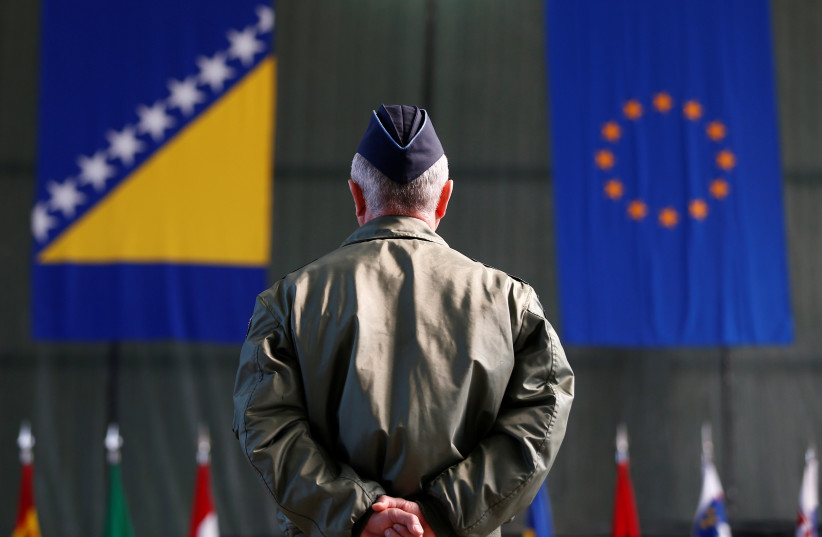European Union foreign ministers are expected to agree on a mission to train 15,000 Ukrainian troops from next month and an extra 500 million euros worth of funding for arms deliveries to Kyiv when they meet in Luxembourg on Monday.
The ministers are also likely to slap additional sanctions on Iran over Tehran's latest crackdown on protesters, and take a fresh look at the bloc's relations with China, paving the way for a potentially tougher stance on Beijing.
Two senior EU officials said the military training would start in mid-November and would take place on EU territory at one hub in Poland and another in Germany.
Several EU countries have already been instructing Ukrainian troops on how to use specific weapons and this will continue.
The European Union has supported Kyiv since the start of the war with financial and, in a first for the bloc, military aid.

The foreign ministers will agree to add a further 500 million euros ($486 million) to a fund that reimburses EU member states for arms delivered to Ukraine, bringing the total amount earmarked for arms for Kyiv to over 3 billion euros.
Unlike earlier tranches, the additional money will also cover costs for repair and maintenance of weapons already delivered to Ukraine.
Sanctions on Iran
The EU ministers are expected to impose travel bans and asset freezes on some 15 Iranians involved in the crackdown on demonstrators in Iran, who took to the streets after the death in police custody of 22-year-old Mahsa Amini.
EU foreign ministers will also discuss the transfer of Iranian drones to Russia, opening the way for potential further sanctions that could be agreed at a later date.
With regard to China, ministers will look into a "fine tuning" of the relations, officials said, noting that Beijing is a crucial trade partner for the EU and Europe depends on Chinese products and raw materials.
Diplomats say Brussels is concerned that Chinese President Xi Jinping is setting China on an increasingly authoritarian path, and uneasy about Xi's support of Russian President Vladimir Putin.
"The objective is not to change radically this (EU) policy but, obviously, things have happened and ministers will be talking about that," one EU official said, adding that there may be a need to change policy in the future.
He said the bloc's leaders would discuss China policy at a summit on Thursday and Friday, and the EU would also monitor closely the Communist Party Congress that opened on Sunday.
